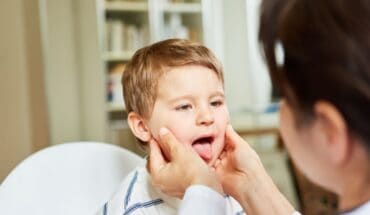Breastfeeding beyond infancy:
Assessing attitudes to breastfeeding: To obtain the optimal health benefits for both parent and child, the World Health Organization (2021) recommends continued breastfeeding up to two years of age or beyond with the introduction of nutritionally adequate and safe complementary (solid) foods at six months. However, there are stark differences globally in breastfeeding prevalence, with high income countries, such as the UK, having the shortest duration (Victora, et al 2016). This means that most women are not meeting these recommendations.
For mothers (or chest-feeding parents) to successfully breastfeed they need to be provided with accurate information and have the support of their family, the health care system and society at large. They can overcome many challenges whilst initiating and breastfeeding within the first year. However, those who continue breastfeeding beyond one year can face stigma due to a lack of awareness of the current breastfeeding recommendations.
My series of publications, exploring the experiences of breastfeeding beyond infancy, highlights that breastfeeding within infancy through to toddlerhood is an instinctive assented transition. For these mothers, breastfeeding beyond one year may not have been their initial plan. However, breastfeeding their child to the time they were naturally ready to wean had become fundamental. This is because breastfeeding had become part of everyday family life and it was thought that to end this would cause unwanted distress for both mother and child. There was a strong consensus that because their bodies continued to produce the breast milk for their child there was no reason why they should not be allowed to have it.
Benefits beyond nutrition
The benefits experienced through breastfeeding at this age reached far beyond its nutritional value. For example, it plays an essential role for parenting through typical toddler behaviours, and for settling and soothing a child when they are restless, tired, poorly or hurt. These mothers felt that because they were breastfeeding during this age it enabled their child to confidently explore their environment while being able to reconnect with them when needed. Breastfeeding aids the realignment of a toddler’s emotions when they become developmentally overwhelming.
Changes in attitudes
Initially these mothers’ experience of breastfeeding support had been informative and positive. However, as their child grew the mothers’ experience of support changed. Their social circles became smaller, their wider family became problematic and contact with health care professionals would often become confrontational. Repeatedly, they found themselves being misinformed and advised to stop. This consequently led to seeking alternative advice through peers and breastfeeding charities, creating a distrust towards medical advice.
Breastfeeding needs in toddlerhood and the nuance support required
There were some key features unique to breastfeeding in toddlerhood that these mothers felt were not addressed by healthcare professionals. This included information on fertility, medication and dental care or tandem breastfeeding. They also felt that additional advice is needed to manage common breastfeeding behaviours such as being aggressive with breasts or periods when night-time feeding increases, e.g. when a parent returns to work. However, this advice should be solution-focused to support continued breastfeeding.
Attending local community voluntary groups allowed the mothers to meet face to face with like-minded individuals who were attuned to their breastfeeding practices. Consequently, the women were able to feel part of a community and receive specialised support that was not forthcoming from other healthcare practitioners. For many, the meetings helped to address the stigma around breastfeeding beyond infancy and enabled the women to feel less marginalised.
There were also mothers who turned to online forums for support with these issues to seek advice from others going through similar experiences. Many of the mothers encountered a range of challenging situations, facing both implicit and explicit judgement from others, including experiencing disapproval from family members. This led them to make close links to public expectations that breastfeeding was only for babies. Many of the participants in the study also spoke about the relevance of specific closed groups on social media. These allowed them to access support whenever they needed it, rather than being tied to face to face groups at set times. The international membership of such groups was particularly important in further normalising breastfeeding beyond infancy, sharing experiences with women from across the world.
Support from within the family
What can you do as a partner or family member to support breastfeeding beyond infancy?
It is important never to advise a mother to stop breastfeeding unless you can be certain that continuing to do so will put either child or mother at immediate risk. It is the fundamental choice of the mother or chest-feeding parent to breastfeed and we all have a duty to enable them to continue. Instead, listen and acknowledge their experiences. Ask how they would like to be supported and do your part in raising awareness of the WHO recommendations within your social networks and to health professionals.
Be mindful of your language
Language such as ‘extended’ or ‘continued’ or even ‘beyond’ implies that breastfeeding within this period is longer than what is recommended or is different to what is considered the norm. This can consequently segregate this group further. Instead, ask the parent if they intend to breastfeed to a natural term and seek to understand how you can enable this to happen.
We all have a duty to raise awareness of breastfeeding beyond infancy. More research is needed to understand how specific enablers and barriers impact breastfeeding and chest-feeding to the WHO recommendations, and I intend to take this further in my research.
You can find out further how to support breastfeeding beyond infancy in our research case study exploring mothers’ experiences, including a short animation.
Further information
You can read about this study further in the publications to this study:
Jackson, J.E. and Hallam, J.L., 2021. ‘It’s quite a taboo subject’: an investigation of mother’s experiences of breastfeeding beyond infancy and the challenges they face. Women & Health, pp.1-9.
Jackson, J.E. and Hallam, J. (2020). Against all odds—why UK mothers’ breastfeeding beyond infancy are turning to their international peers for emotional and informative support. Health Care for Women International, pp.1-17
Jackson, J. E. & Hallam, J. (2019) ‘I felt like I was doing something wrong’: A qualitative exploration of mothers’ experiences of breastfeeding. Journal of Health Visiting, 7, 166-172
References
World Health Organization (2021) Infant and young child feeding. Infant and young child feeding (who.int) Accessed 15/06/2021 Victoria, C. G., Bahl, R., Barros, A. J., Franca, G. V., Horton, S., Krasevec, J., Murch, S., Sankar, M. J., Walker, N. and Rollins, N. C. (2016). Breastfeeding in the 21st century: epidemiology, mechanisms, and lifelong effect. The Lancet, 387, 475-490.
- Breastfeeding beyond infancy - 28th June 2021






